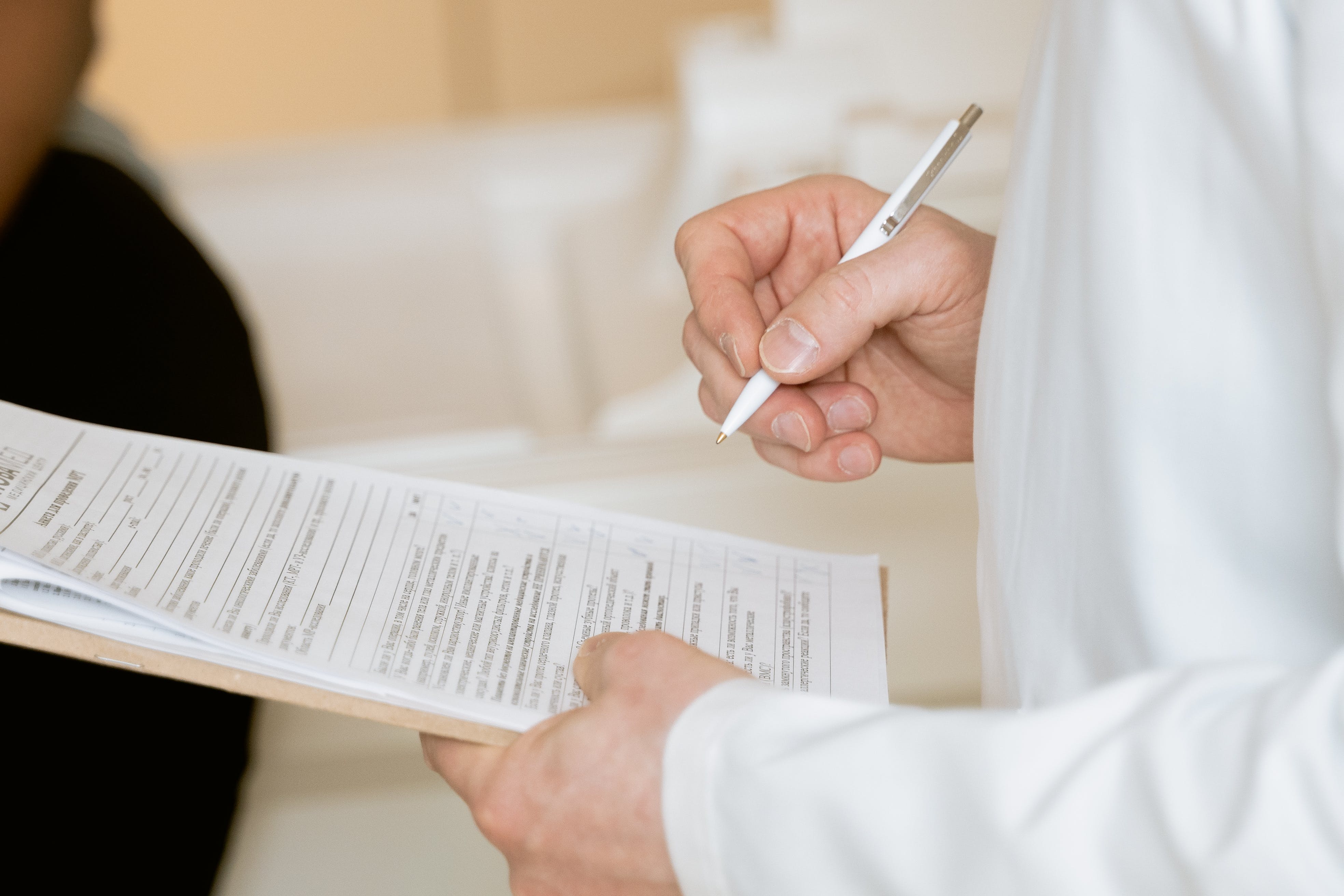Katrina didn’t think chemotherapy
• a chemical drug treatment to kill or slow-growing cancer Cells
• these drugs are called cytotoxic drugs
and radiation would be easy. But she believes a better idea of what to expect – both physically and emotionally – would have better prepared her for the journey ahead.
When 43-year-old Katrina experienced prolonged bleeding and spotting, she put it down to perimenopause. When painful stomach aches began, she knew something wasn’t right.
A visit to her specialist revealed a golf ball sized lump in her uterus. After undergoing urgent surgery to remove it, it was confirmed the lump was adenocarcinomaa cancer that grows in gland tissue.
“The word ‘cancer’ just numbed me, I was in shock. It’s not something I was expecting – being told you have cancerA disease where abnormal cells split without control and spread to other nearby body tissue and/or organs. Cancer cells can also spread to other parts of the body through the bloodstream and lymph systems. is the hardest thing you can hear. I was very, very upset,” Katrina recalled.
“When they told me it was still in my uterus and had also spread to my cervix – and was stage three – I was even more scared. I just thought, ‘What are they telling me? Am I going to die?’ They told me it was classified as a rare cancer, and I didn’t even know that was a thing. I just knew that meant it was bad.”

Katrina endured five weeks of radiation, five sessions of chemo, and three sessions of brachytherapyRadiation therapy that is done close to the surface (outside) of the body area or is done inside the body itself by using needles and/or seeds to deliver radiation radiation treatment that targets specific tissue(s) or area with no danger or harm to other tissue(s) around the cancer., which she describes as ‘brutal’.
“Treatment is very different for everyone, but for me it was traumatic. I was lucky enough to be at a brilliant hospital with very compassionate nurses, but I just didn’t go in expecting how hard it would be. I couldn’t get out of bed for the five weeks, I just wanted to curl up into a ball and sleep. I had no control; I just had to rest and let it take its toll. I was so grumpy, but the nurses reassured me it’s ok to feel like this, it’s normal.
Thankfully I was able to keep most of my hair, but I experienced other side effects that were very harsh on my body. That was the hardest thing to deal with. People don’t understand just how horribly sick you feel, and the total loss of control that comes with it. A few friends told me, “Just be mentally strong!” but it’s not that easy, even if you are a very positive person.
I felt terrible during treatment I didn’t want to talk to or interact with anyone. You just want to push everyone away. Having people around you is so important, knowing they’re thinking of you, believing you’ll be fine. It really matters. It makes me think about others who don’t have that, and how alone they must feel.”
Katrina believes that her good health pre-diagnosis played a large part in her recovery.
“I was very fit before I was diagnosed. The doctors said they couldn’t believe how I got through treatment as well as I did. That good health definitely carried me through; no medication needed to be prescribed.

I used to do a lot of running, but it’s more walking and yoga for now. I’m having to build up my fitness again. Your relationship with your own body is totally different, sometimes it feels wrecked, like a very old woman, and other times I feel really good.
I’m even more conscious of taking care of myself now; I think you can become a little hypervigilant about that. I get very panicky, especially in the leadup to scans. ‘What if the cancer is still there? Will it come back? Am I listening to my body enough? Too much?’ The fear of it coming back can be pretty constant.”
Feeling well now and reflecting on her experience, Katrina believes that asking questions is key.
“If something doesn’t feel right in your body, get it checked out. Ask all the questions you need until you’re confident everything is ok. And if you are facing cancer, ask even more questions about what to expect, not just physically, but emotionally too. Everyone’s experience is different, but I think it helps you to feel less alone,” she said.
To learn about how RCA can support Australians impacted by rare cancer, see How We Can Help.